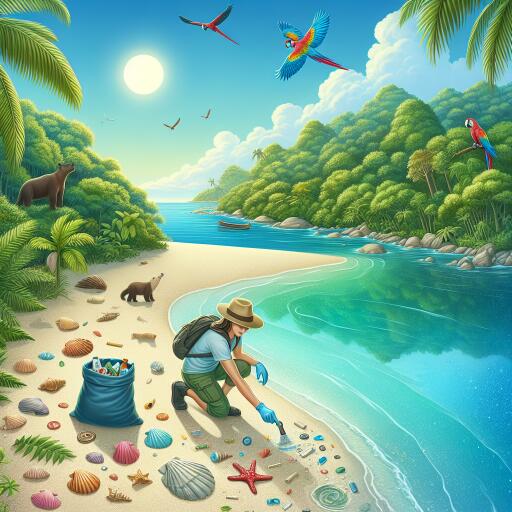
How Belize Reinforced My Belief That Travel Can Nurture the Natural World
Strolling through the dense foliage of Red Bank, a verdant jewel within Belize’s lush landscape, my guide introduced me to a simple yet profound truth. He shared a tale of once escorting a biologist to marvel at the macaws, who mused, “Perhaps their beauty is unburdened by purpose.” This thought lingered with me as our journey unveiled the rich tapestry of Belize’s biodiversity.
Our adventure had commenced under the canopy of Chan Chich Lodge’s rainforest, within the sprawling Selva Maya. As we meandered through Crooked Tree’s wetlands, brimming with migratory birds, and glided by speedboat across Turneffe Atoll’s mangroves and coral reefs, Belize unraveled its ecological wonders before us. Finally, nestled in the Maya Mountains, we marveled at the seasonal home of the macaws.
I found myself not only birdwatching but also being captivated by my guide’s adept identification of species by their calls, a testament to the richness of life that thrives in the unseen. The road through the journey was illuminated by his knowledge, turning what seemed like an ordinary landscape into a live gallery of nature’s creations.
The biodiversity of Belize’s rainforests, from the symbiotic relationships between the bullhorn acacia and its protective ants to the industrious leaf-cutter ants crafting their miniature highways, painted a vivid picture of nature’s interconnectedness. Despite our hopes of spotting elusive jaguars or tapirs, the sheer essence of Belize’s wilderness, where conservation is both a practice and a story of success, resonated deeply.
Yet, beneath the surface of these ecological marvels, lies the shadow of climate change. It’s altering migratory patterns and threatening the habitats of countless species, casting uncertainty over the macaws’ future. The iron grip of climate change, alongside the looming danger of poachers, raises an uncomfortable question about the ethics of my travels.
The narrative of eco-tourism as a saviour for such sanctuaries began to unravel as I delved into conservational efforts buoyed by tourism revenues. From the simple yet impactful eco-lodge in the northern forest, where every stay funds conservation rangers, to the stark contrast at the Belize-Guatemala border showcasing the power of tourism dollars in conservation, the evidence of eco-tourism’s positive impact was undeniable.
Confronted with the dilemma of eco-tourism’s global footprint against its local benefits, I learned that the balance lies in mindful travel. Opting for carbon offsets and supporting establishments that fund conservation initiatives can mitigate the paradox of eco-tourism. My journey was complemented by contributions to a Belizean agroforestry project, symbolizing a step towards reconciling with nature.
Advisement for prospective travelers to Belize included embracing accommodation that prioritizes sustainability and engaging in tours that directly benefit conservation efforts. This does not negate the broader challenge of climate change but offers a pathway for travelers to contribute positively.
Ultimately, Belize left an indelible mark on me, not just through its vibrant and resilient ecosystems, but also by illustrating the complex relationship between humanity and nature. It’s a reminder that, in our pursuit to explore the beauty of our planet, we hold the capability, and responsibility, to ensure its preservation for generations to come.





Leave a Reply